lend me ur eyes 074
[ 07 / 02 / 24 ]
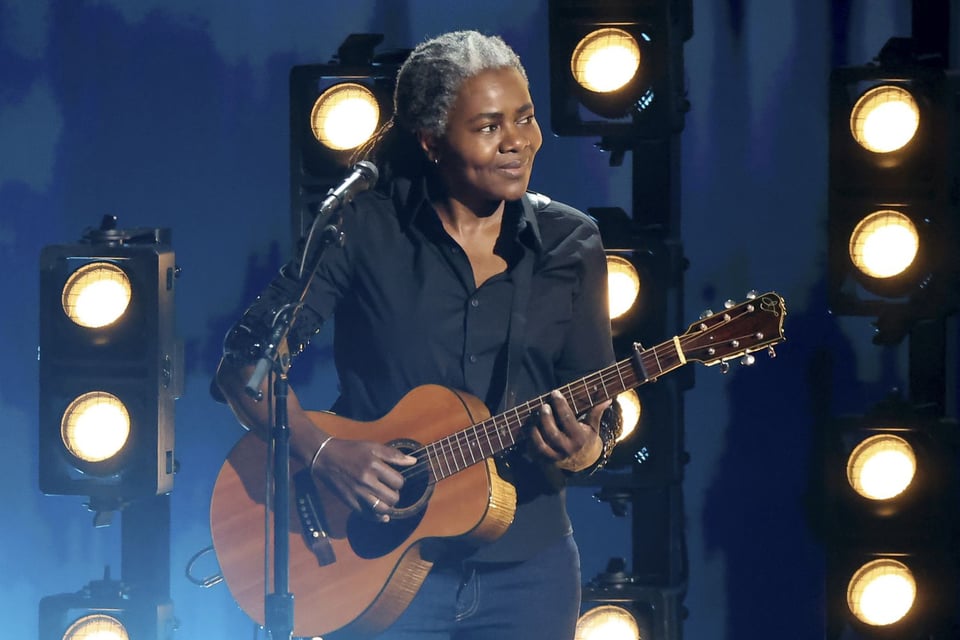
"Things, I know, stiffen and shift in memory, become what they never were before. As when an army takes over a country. Or a summer yard goes scarlet with fall and its venous leaves." - Lorrie Moore, Who Will Run the Frog Hospital?
I remember PL, then aged 98, seeing out her last days in a hospital bed in Tonbridge in 2005, singing 1940s wartime ditties, staring off into the distance wistfully. She was fine, and then, within five days or so, decided to no longer continue living. I remember, in Auckland in 2001, seeing DL's green and faded flying fish tattoo. He pulled his sleeve down to hide it, ashamed for reasons I then couldn't process. I remember eating a roast in Bradford in 2000, the whole meal arriving housed inside a plate-like Yorkshire pudding. I can't remember why I was there or who was with me. I remember watching fireworks in Enfield Town Park in 1997, standing first by the barrier but then retreating back further when blazing shrapnel starting falling too close for comfort. I remember MN barking into oblivion in the hallway of JN's Oakwood house in 2010. We called that place the "pink house" then, because of the distinctive colour painted over the pebbledash exterior walls. MN had developed dog dementia and was seeing ghosts of the canine past, or so the vet speculated. MN lived to eighteen, and he lived most of his life beautifully, slobbering, chasing golf balls, jumping up to join us on the trampoline. I remember SL carrying me home from school in a fireman lift after I became woozy on results day in 2009, later learning I had contracted swine flu. Everyone else went to Oceana Watford that night but I was home vomiting. I remember lots of flashes of trips on the ferry to Calais, and drives through the Dartford tunnel, but with no real context, and no dates attached either. I remember throwing some Crazy Bones at NH in Barnet in 1998, the only spat we ever had and one we both immediately understood as absurd. I remember HS stacking all the ends of all the Christmas crackers one onto another in my parents house in 1997, making wobbly towers to impress us. I remember JL's first wedding in 2018, and his school friend telling me had known him since he "was knee high to a grasshopper," a strange phrase for a seventeen-year-old to use and one that has been imprinted in my subconscious since. My memories are fragments; they float around in virtual brain-space like the interface Tom Cruise uses in Minority Report, appearing, reappearing, becoming diffuse, crystallising, evaporating into raw data again. I imagine I can move them around and manipulate them using my fingers, replaying them, skipping forwards and back in time, building a bigger picture of who I am and what it means to be a person. I imagine each one as a neat little floppy disc that be inserted into the desktop computer of my brain. Things change quickly and we are supposed to treat every day like it is precious. But we can't always do this. Many of them all feel the same. But in them are micro-moments that will probably loop back round, taking on greater emotional significance in the abstraction of isolation that is a feature of context-free random recall. Five days is nothing and it is also a lifetime. It is five hundred fizzy half-memories in the making, quickly banked somewhere deep in the mind-depot, later to reappear as something at once happy-sad-beautiful-melancholy, as something worth remembering.
LISTENING
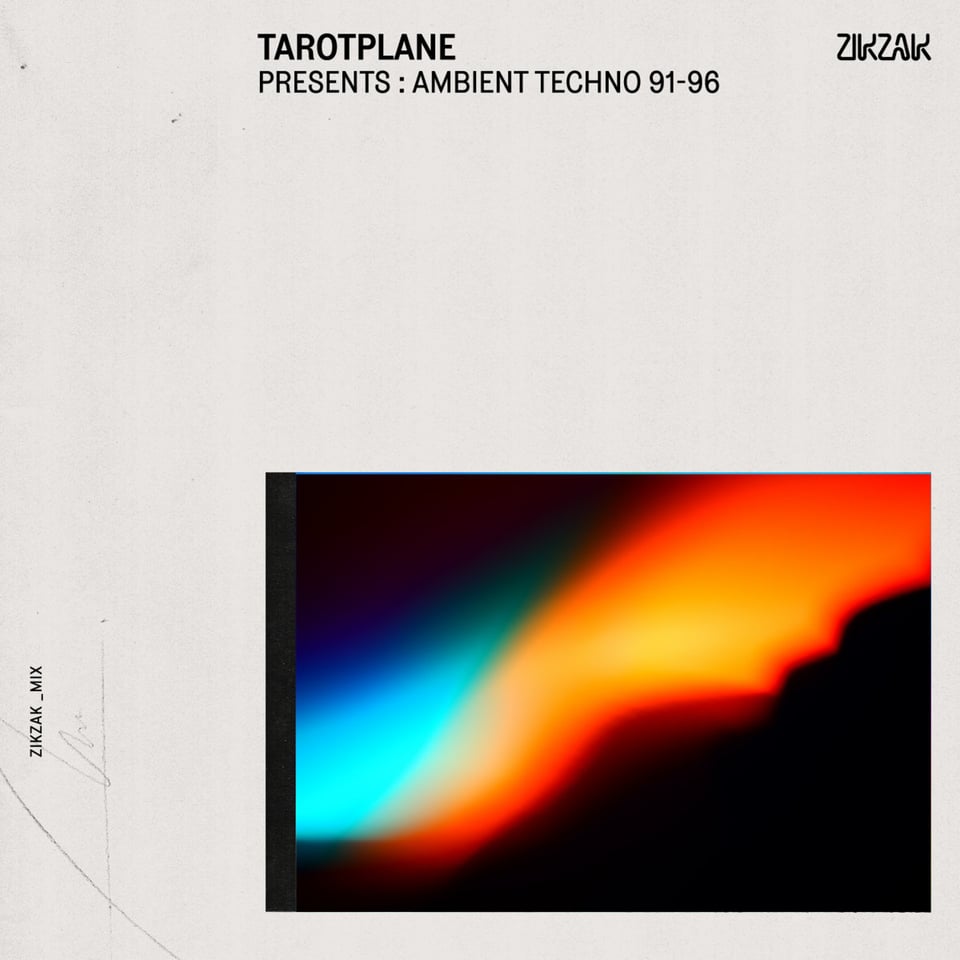
I've been working through Tarotplane's Zikzak mix series, all of which are long, clearly defined and curated, and tremendously well selected. Michael McKinney, who did the most amazing and in-depth round-up of the best mixes and DJ sets of 2023 on the online magazine The Passion of the Weiss, explains that Tarotplane's mixes "include a three-hour dive into 'British underground folk,' a survey of German kosmische, and 'unsettled ambience from the industrial era.'" He also writes, and I agree, that the ninth (ambient techno, ‘91-96) and tenth (American visionary music) episodes "might be the most impressive of the bunch." The former offers five hours of "techno with one foot in the cosmos and a never-ending groove," while the latter includes "hushed guitar music, blurry ambience, and a Spaghetti-Western kind of psychedelia," with tracks by artists such as Ernest Hood, Laurie Spiegel, Pharaoh Sanders, and Robert Ashley. "It’s not new age, exactly, nor jazz, nor ambient," writes McKinney. "This is, in its own way, a glacial sort of folk music." Both mixes are the best kind of working music: what I call (in my head of course, because no one cares) "active background" music.
WATCHING
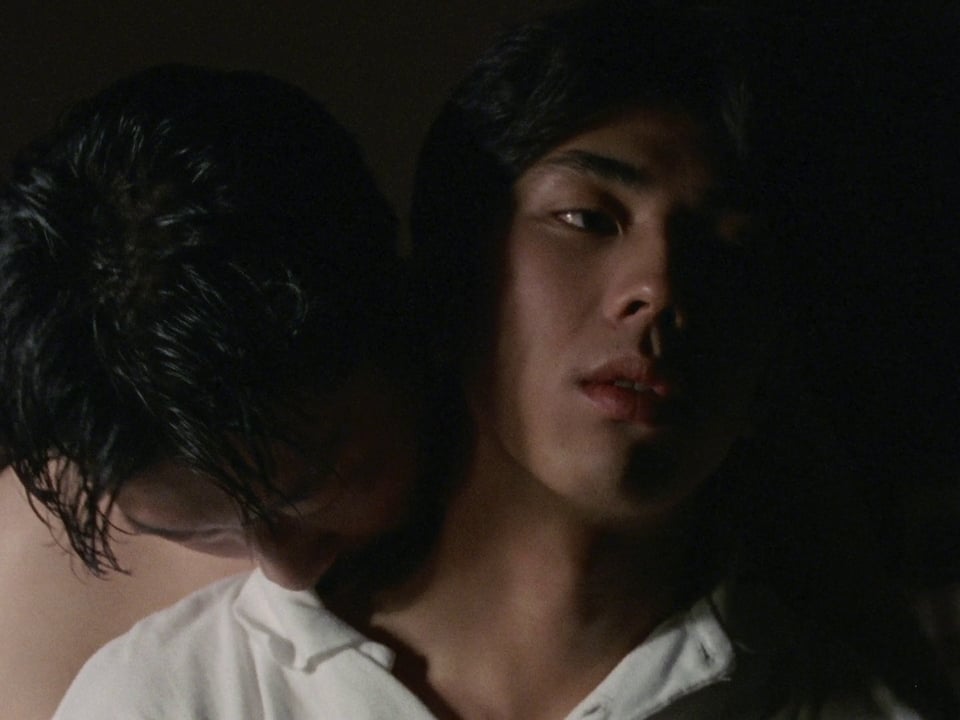
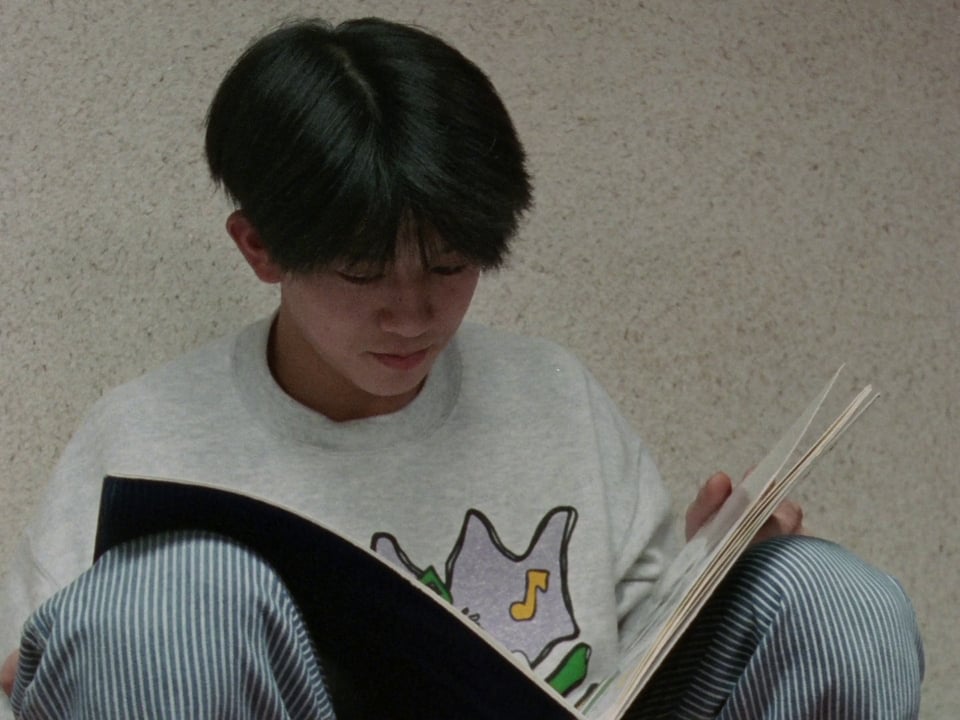
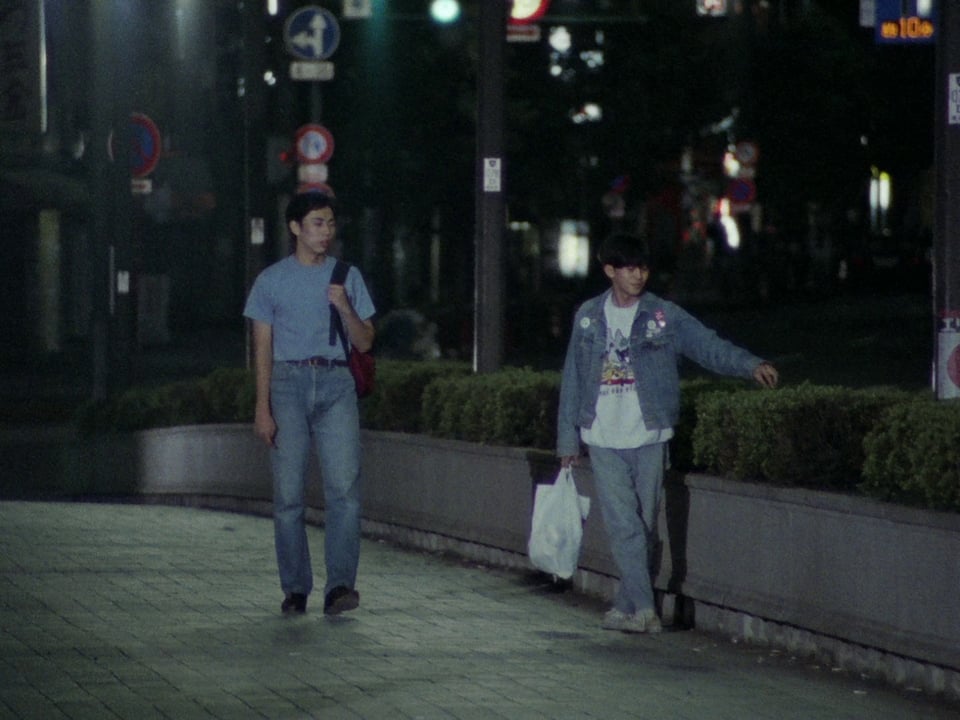
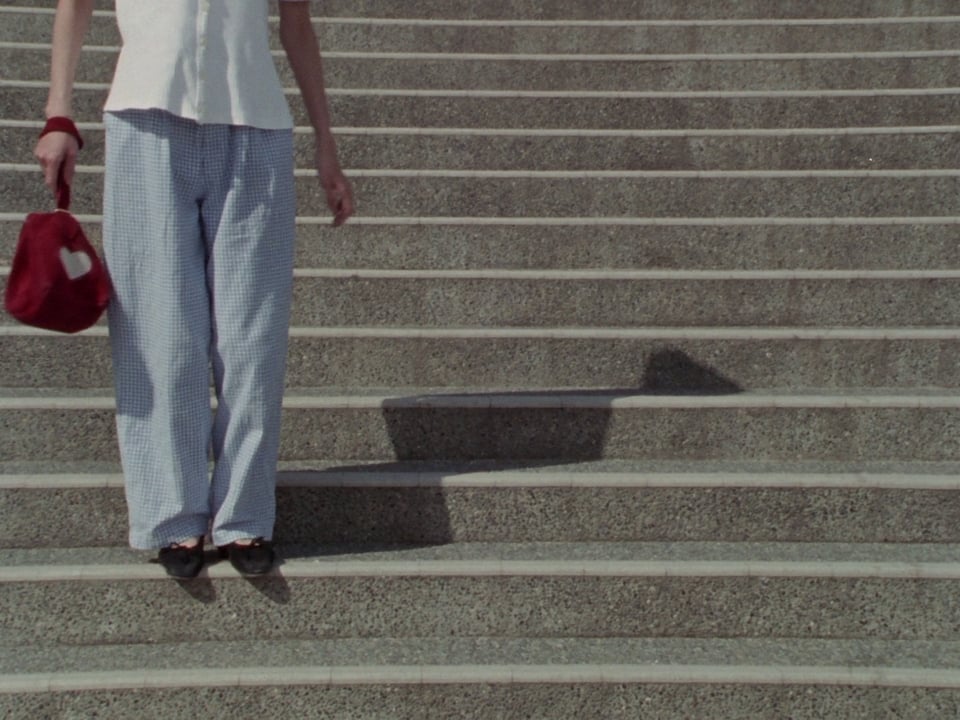
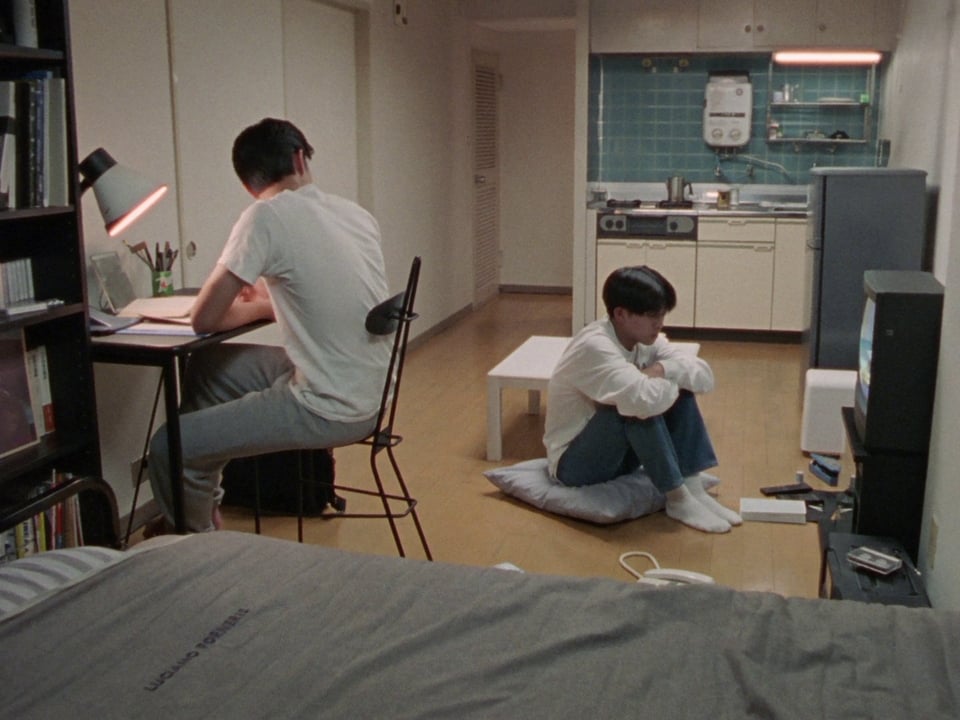
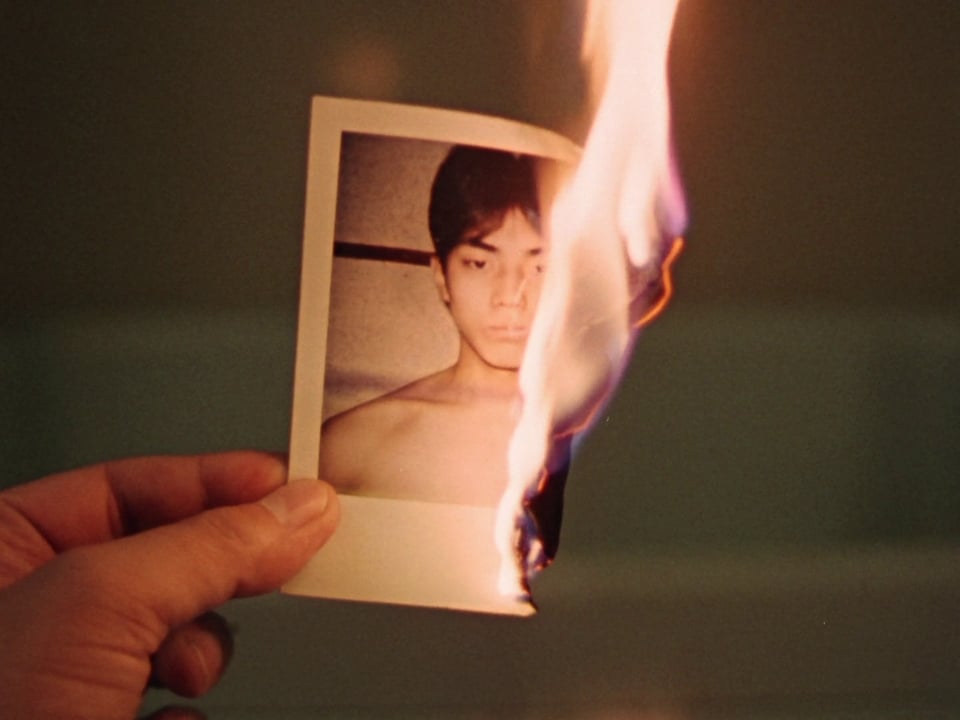
It was a no-limits download period on the private torrent website Karagarga recently, and so I downloaded a few odd Japanese films from the 1990s, the sort that no cinema near me is likely to screen, or at least not for the time being. Among those were a few films by Ryosuke Hashiguchi (who sounds similar to to Ryusuke Hamaguchi, but is a different guy!) Known (or rather, not well enough known) for making slice-of-life films about queer characters, he is a really good filmmaker. He first made films as a student in the 1980s, and is still making them, albeit recently seemingly mostly in the form of workshop-based collaborative works, or omnibus features. I watched his film Like Grains of Sand (1995) during the pandemic, and was very taken by it. The film has a good title, and a good poster too, so I took a leap on it. A coming-of-age film surrounding several intertwining stories, it is hugely atmospheric, and also very aching and tender. It is a film about a slowly unfolding love triangle, and it ends with a really beautiful, ethereal finale
Recently, I also watched A Touch of Fever (1993) and Hush! (2001), the two features he made before and after. A Touch of Fever follows several young men working tentatively as sex workers, exploring their uncertainty about their sexuality, their work, and the directions of their still unfurling identities. As with how Like Grains of Sands builds towards a climatic final scene, the film pivots around two protracted sequences in which the film's themes coalesce. In one, two characters deny their love for each other, acting rashly when the pressure rises within a cramped domestic interior. In the other, the same two characters, become stuck in a strange situation with a client that repulses them. Struggling to articulate who they are and what they want, they suffer in silence, failing to brave the words needed to instigate action. It is a very good film about people who don't know what they want, and who self-sabotage instead of accepting themselves, and it expresses this mostly without resorting to overelaborate dialogue. Hush! is about a woman who approaches a gay man to ask him to have her baby, without first informing his partner. From this setup, it expands to become quite a sprawling story, adopting rom-com conventions while also expanding and subverting them. Again, it is about outsiders struggling to be true to themselves, and the contemporary society that shuns and pressures them. Again, it features a pivotal scene structured around a confrontation that proves painful and also cathartic. It is painted in broader strokes than the other two films, but is just as lovely, and, again, has a truly satisfying ending.
Hashiguchi makes very good films about desire and uncertainty, about the chasms that grow between people when they can't communicate authentically, and the pain of not being seen for who you are and the angst of unknowability. He is also very good at expressing, through stories, the constraints of conventional and conservative societies, and how these things push people further inside themselves, creating internal pressure cookers of repression and deflection. These are themes that I like to watch films about, but it is not just this. He also creates gorgeous images, and holds his takes for a compellingly long time. These are films that grow slowly into themselves, that hold back a bit at first but not so much that there is nothing to grab onto. They are films that give you lots of beauty (outfits, stone-skimmings, bars, lunches, and restaurant conversations, people meeting in parks at night and walking along beaches at sundown), and lots of heavy feelings, but also make you do plenty of active-work too, encouraging thoughtful viewing. Watching films is so interesting. Even within one specific national cinema, you watch the filmographies of a lot of filmmakers but you still barely crack the surface. You dig a little deeper into the depths of the dark web, and your next new favourite is hiding there, waiting patiently to be discovered. This is a bit naughty, but if these films sound interesting, please email me and I will be happy to find a way to send them to you.
PERSONAL
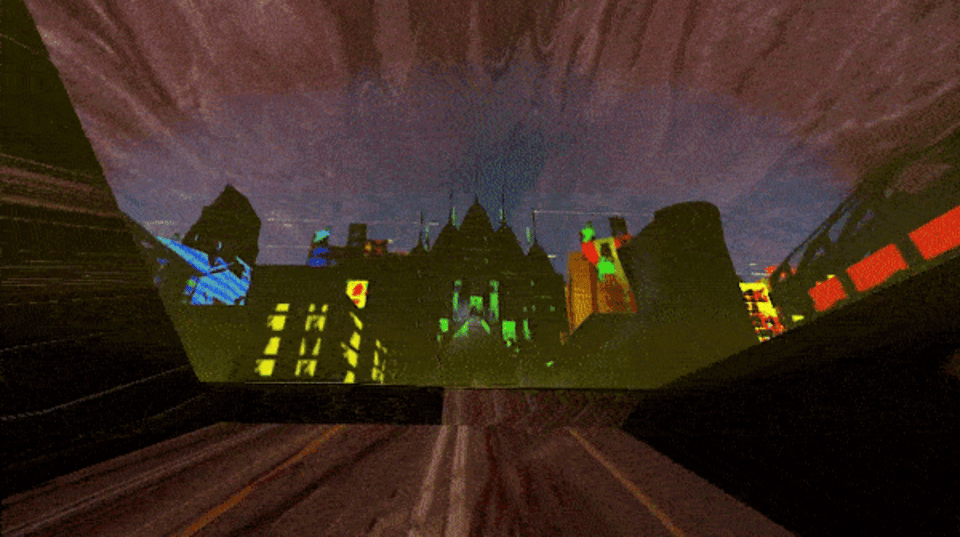
The newest article in my "cutscenes" column is now online on Notebook. This one is a long interview with Danielle Brathwaite-Shirley, an artist who makes work in all sorts of formats exploring, and, to use her word, archiving, Black trans experience. We focused on her digital animation and video game works, discussing what it means to make artworks that actively engage the person interacting with them, forcing them to confront themselves as much as the thing they are encountering. She was straightforward, frank, and entirely free of art-speak, but also thoughtful about her work and its intentions. It was nice to interview someone also from London, which I think, weirdly, is something I've never done previously. Also, someone roughly the same age, with many of the same frames of reference, but also lots of difference too, in both experience and perspective. I remember someone told me once that when interviewing artists, they would often ask a few standard questions and then throw in something unexpected. When they did this, they would sense that the artist had been "unlocked," moving from providing their pre-decided answers towards actually seeing the interviewer not as a journalist but as a real person, and then addressing them as such, starting a real conversation. I'm not saying anyone I've conversed with has ever been "unlocked," but I do get what they meant by that phrasing, and it's a fun thing to think about as an aim or objective when interviewing.